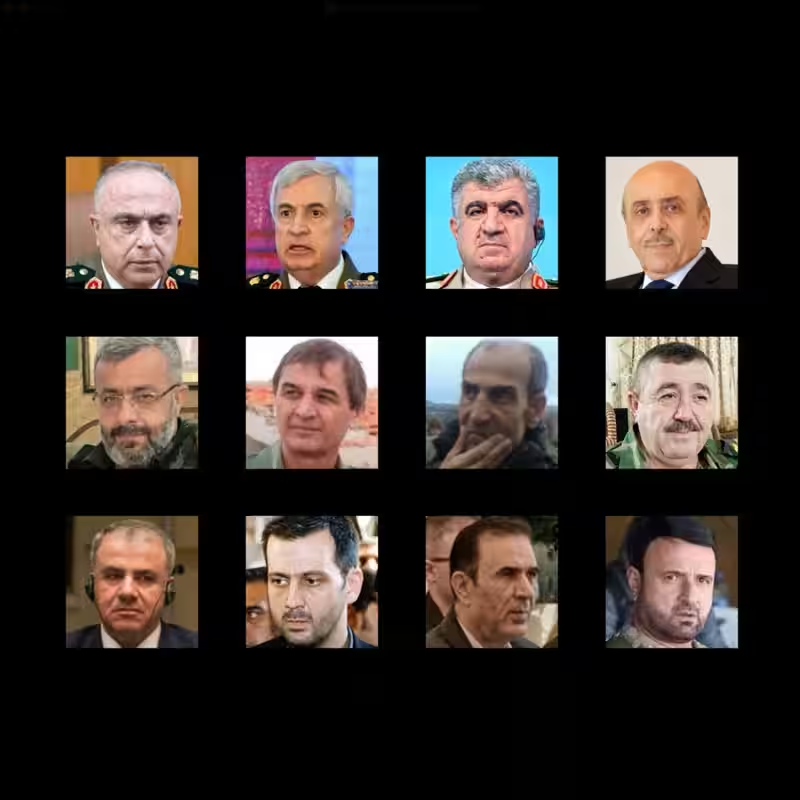Table of Contents
- The Midnight Exodus from Damascus
- Who Exactly Escaped—and What They’re Accused Of
- The Global Hunt for Justice Stalls
- How the Assad Regime Crumbled Overnight
- Sources
Assad’s Henchmen Flee Syria in Secret Midnight Escape
Just hours after Bashar al-Assad fled Syria in December 2024, a small Syrian Air jet taxied under cover of darkness at Damascus International Airport’s military terminal. It was past midnight on December 8, and aboard were dozens of men who, until recently, wielded absolute power over a nation ravaged by 13 years of war.
Now, they were fugitives—packing what they could carry, bringing their families, and vanishing into the night. According to three sources with direct knowledge of the flight, including a passenger and two former regime insiders, this was no ordinary evacuation. It was the final act of a collapsing dictatorship, and it happened virtually undetected by the international community.
Key Figures Who Escaped—and Their Alleged Crimes
The aircraft carried some of the most notorious names in Syria’s security apparatus:
- Qahtan Khalil – Director of Air Force Intelligence, directly implicated in one of the bloodiest massacres of the civil war.
- Ali Abbas – Former Defense Minister, sanctioned by the U.S. and EU for orchestrating attacks on civilian populations.
- Ali Ayyoub – Another ex-Defense Minister, accused of overseeing chemical weapons deployments.
- Abdul Karim Ibrahim – Chief of General Staff, linked to systematic torture and sexual violence in military detention centers.
These men weren’t just bureaucrats—they were architects of a regime that killed over half a million people and displaced more than 13 million. Yet as the state collapsed, they slipped away without arrest, extradition, or even public tracking.
Justice Delayed, Justice Denied?
Human rights organizations have long pushed for accountability through international courts, including the International Criminal Court (ICC) and specialized tribunals. But Syria is not a party to the Rome Statute, and geopolitical divisions—especially among UN Security Council members—have blocked formal prosecutions.
Now, with key suspects scattered across unknown destinations—possibly in Russia, Iran, or friendly African states—the window for justice is narrowing. “This isn’t just an escape,” said Nadia Rahman of the Syrian Justice Coalition. “It’s a systemic failure of global accountability.”
Efforts by Europol and Interpol to issue Red Notices have so far yielded little. Many of the fugitives used diplomatic passports or false identities, exploiting decades of regime-built networks to disappear.
The Sudden Fall of a 50-Year Dynasty
The Assad family ruled Syria for over five decades, first under Hafez al-Assad and then his son Bashar. The regime’s collapse in late 2024 came faster than analysts predicted—sparked by a combination of internal military fractures, economic freefall, and a final offensive by opposition forces backed by regional actors.
While the world focused on Bashar al-Assad’s dramatic escape, the coordinated flight of his inner circle revealed a chilling level of pre-planning. Safe houses, offshore accounts, and exit routes had been prepared years in advance—proof that even as they denied defeat, the regime’s elite knew their time was running out.
Today, Syria faces an uncertain future: rebuilding without reconciliation, and seeking peace without justice. As one Damascus resident put it, “They took everything—even the chance to see them punished.”




